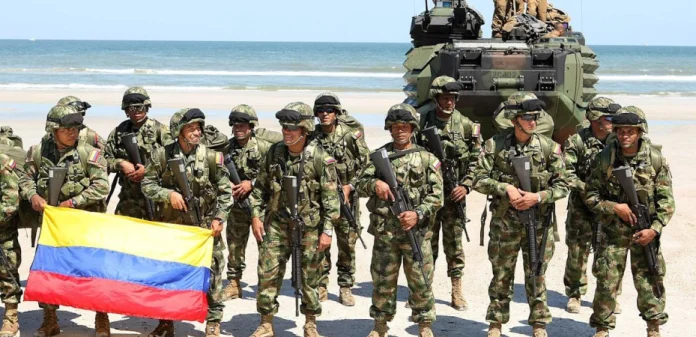Three combat veterans who joined the war in Ukraine due to financial difficulties have died, The New York Times reports.
Manuel Barrios joined the war over bank threats to repossess his home in Colombia; Luis Alejandro Herrera returned to the war front to recover savings lost in a failed attempt to enter the US through Mexico; Jhoan Cerón joined the battle to provide for his child.
All three died. They were among hundreds of Colombian veterans who volunteered to fight for Ukraine in order to earn at least three times what they could earned at home.
Manuel Barrios’s wife, Maria Cubillos, stated that her husband “was fighting a war in a country that wasn’t his because of the dire need.”
The stories of Colombian volunteers prove the transformation of the military conflict in Ukraine into a protracted war of attrition. Heavy casualties and inconclusive battles are forcing both sides to seek new fighters to replenish their ranks.
As the fighting devolves into inconclusive, brutal positional warfare, material motives become more prominent. Cristian Pérez, a retired sniper in Colombia’s Army, is also considering fighting in Ukraine.
I would venture to say that not one Colombian has gone there to defend democracy. I don’t believe they have even heard of Ukraine before the war. Everything comes down to economic motivations.
The Ukrainian military did not provide an estimate of the number of Colombian or other foreign fighters in its ranks, citing operational security. The Colombian government also did not release any figures, emphasising that the volunteers no longer had ties to Colombian institutions.
Although retired professional soldiers in Colombia receive a lifetime monthly pension of between $400 and $600, as well as free health care for their families, these benefits are often not enough. Many realise that skills honed in combat are of little use in civilian life.
All we know is how to use arms.
Some veterans eventually join organised crime groups, while others who continue to work in the legal economy tend to become bodyguards. They receive about $1,000 a month, which is not enough to meet their financial goals.
Economic pressures are forcing Colombian veterans to leave the country. Many are eager for lucrative security contracts in Middle Eastern oil states. However, the upper threshold of 40 years of age generally prevents them from getting such jobs.
Some overseas assignments have led to scandal. For instance, two dozen retired Colombian military officers are facing trial in Haiti and the US for involvement in the assassination of Haiti’s president in 2021.
Rumours of combat opportunities in Ukraine began circulating in Colombian veterans’ chat groups last year, when the initial influx of Western volunteers began to wane.
Once in Ukraine, Colombian soldiers open a local bank account and send debit cards to their families, allowing them to withdraw income from a Colombian ATM. The soldiers reported that they were paid about $3,000 per month in Ukrainian currency, which was roughly equivalent to the salaries of local soldiers.
At the front, soldiers claimed, they faced a very different war from the one they had known against the rebels.
Those who want to come here, think about it first. Colombia is child’s play compared to here. When a missile first explodes near you, that’s when you see the devil in person.
An anonymous soldier, unauthorised to speak to the media, reported that only about seven of the 60 Colombians remained. The rest were killed, wounded or returned home after weeks at the front.
After arriving in Ukraine in February, Barrios told his wife that the fighting was more perilous than he expected. He went fighting because a bank threatened to repossess his house weeks after his wife Cubillos gave birth to their third child. Barrios died in a missile strike after 20 days at the front, too soon to earn even one paycheck.
Under Ukrainian law, families of servicemen killed in action should receive a $411,000 payout, but Cubillos said she lacked the money for a lawyer or a plane ticket to travel to Ukraine and personally file a claim for compensation.
Her only memory of her husband’s Ukrainian service is a box of Ukrainian and Foreign Legion flags that was delivered to his homeland.
I wanted to throw all this away. Instead of him, I got a box with a flag that means nothing to me. But I want the baby to know the story of his father, to show what came back of him.
